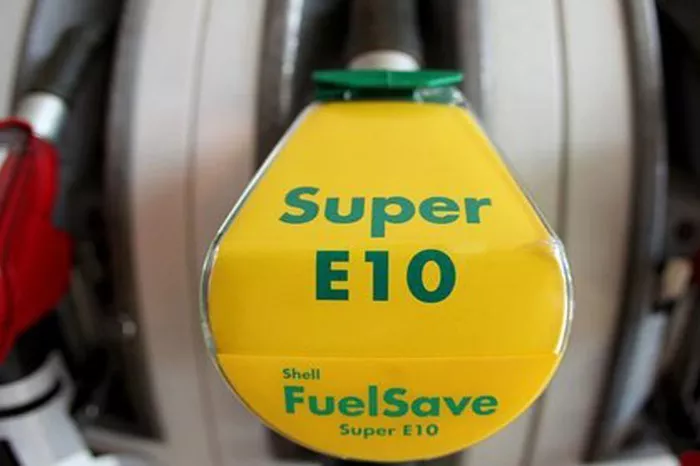E10 fuel is a type of gasoline that contains a blend of 90% gasoline and 10% ethanol. Ethanol is a renewable fuel made from various plant materials, commonly referred to as biomass. This blend is widely used in several countries due to its environmental benefits and its role in reducing the dependence on fossil fuels.
The Composition of E10 Fuel
Ethanol: A Renewable Resource
Ethanol, the key component in E10 fuel, is an alcohol that is produced by fermenting the sugars found in crops like corn, sugarcane, and wheat. In the United States, corn is the primary source of ethanol, whereas in Brazil, sugarcane is predominantly used.
Gasoline: The Conventional Component
The other 90% of E10 fuel is conventional gasoline, derived from crude oil. Gasoline is a hydrocarbon fuel that has been used for over a century to power internal combustion engines.
How E10 Fuel is Produced
The Production Process
Fermentation: The biomass is broken down into sugars, which are then fermented by yeast or bacteria to produce ethanol.
Distillation: The ethanol is separated from the fermentation mixture through distillation.
Dehydration: Any remaining water in the ethanol is removed to create a purer form of ethanol.
Blending: The ethanol is then blended with gasoline to create E10 fuel.
Benefits of E10 Fuel
Environmental Benefits
E10 fuel is known for its environmental advantages. The use of ethanol reduces greenhouse gas emissions because ethanol burns cleaner than gasoline. This means fewer pollutants like carbon monoxide and nitrogen oxides are released into the atmosphere.
Renewable and Sustainable
Ethanol is a renewable resource. Unlike fossil fuels, which are finite, ethanol can be produced from crops that can be replanted and harvested annually. This makes E10 fuel a more sustainable option for the long term.
Energy Independence
By incorporating ethanol into gasoline, countries can reduce their reliance on imported oil. This enhances energy security and can stabilize fuel prices by reducing the impact of international oil market fluctuations.
Economic Impacts of E10 Fuel
Supporting Agriculture
The production of ethanol supports the agricultural sector. Farmers benefit from the demand for crops used in ethanol production. This can lead to increased farm incomes and rural development.
Job Creation
The ethanol industry creates jobs in both the agricultural and manufacturing sectors. Jobs are created in farming, ethanol production facilities, transportation, and research and development.
Market Diversification
Ethanol production provides an additional market for agricultural products. This diversification can help stabilize farm incomes and reduce the risks associated with market volatility.
See also: Top 5 Cars That Can Use E10 Fuel
Technical Aspects of Using E10 Fuel
Compatibility with Vehicles
Most modern vehicles are designed to run on E10 fuel without any modifications. However, it is important for vehicle owners to check their vehicle’s compatibility, especially if the vehicle is older or has a specialized engine.
Performance Characteristics
E10 fuel can slightly reduce fuel economy because ethanol contains less energy per gallon than gasoline. However, the difference is usually minor, and many drivers do not notice a significant change in their vehicle’s performance.
Maintenance Considerations
Using E10 fuel generally requires no special maintenance. However, it is important to keep fuel systems clean and to replace fuel filters regularly to prevent any potential issues related to ethanol’s solvent properties.
Challenges and Criticisms of E10 Fuel
Food vs. Fuel Debate
One of the major criticisms of ethanol production is the food vs. fuel debate. Critics argue that using food crops for fuel production can lead to higher food prices and food shortages, especially in developing countries.
Land Use and Environmental Concerns
Ethanol production requires large amounts of land, water, and fertilizers. This can lead to deforestation, water scarcity, and other environmental issues if not managed sustainably.
Energy Balance
The energy balance of ethanol production is a topic of debate. Some studies suggest that the energy required to produce ethanol, including farming and processing, may offset the benefits of using it as a fuel.
Global Adoption of E10 Fuel
United States
In the United States, E10 fuel is widely available and used. The Renewable Fuel Standard (RFS) mandates the blending of renewable fuels like ethanol into the nation’s fuel supply, promoting the use of E10 and other ethanol blends.
Brazil
Brazil is a leading producer and consumer of ethanol, primarily from sugarcane. The country has been using ethanol-blended fuels since the 1970s and has a well-established infrastructure for ethanol production and distribution.
Europe
In Europe, the adoption of E10 fuel varies by country. Some countries have embraced ethanol-blended fuels as part of their efforts to reduce greenhouse gas emissions and promote renewable energy, while others are more cautious.
Asia
In Asia, countries like China and India are exploring the use of ethanol-blended fuels to address air pollution and reduce dependence on imported oil. However, the adoption rates and production capacities are still developing.
Future of E10 Fuel
Technological Advancements
Advancements in technology are expected to improve the efficiency and sustainability of ethanol production. Innovations in crop genetics, fermentation processes, and biorefinery operations can enhance the overall benefits of E10 fuel.
Second-Generation Biofuels
Second-generation biofuels, made from non-food biomass like agricultural residues and waste materials, are being developed. These biofuels could address some of the criticisms of first-generation ethanol and provide additional environmental benefits.
Policy and Regulatory Support
Continued support from governments and international organizations is crucial for the future of E10 fuel. Policies that promote renewable energy, reduce carbon emissions, and support agricultural development can drive the growth of the ethanol industry.
Conclusion
E10 fuel represents a significant step towards a more sustainable and environmentally friendly energy future. While it has its challenges, the benefits of using a renewable, domestically produced fuel are substantial. Understanding what E10 fuel means, its production process, benefits, and potential drawbacks can help consumers, policymakers, and industry stakeholders make informed decisions about its use and development. As technology advances and policies evolve, E10 fuel and other biofuels will likely play an increasingly important role in the global energy landscape.
Related topics:

